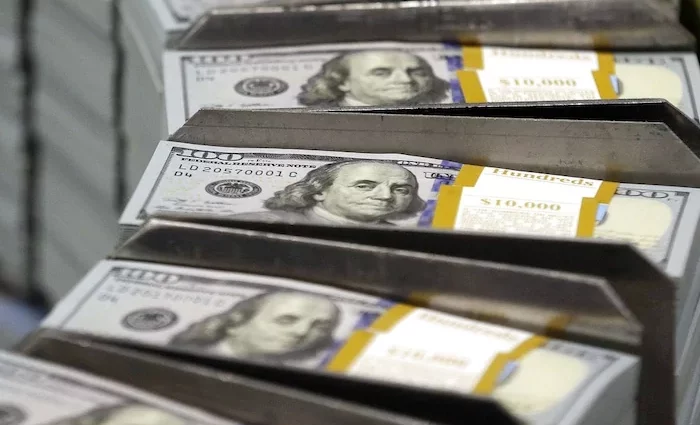The Congressional Budget Office is projecting that federal debt held by the public will climb relentlessly, breaking the country’s all-time record in just a few years.
The CBO released a long-term budget outlook on Thursday afternoon. It shows that despite slight improvements since last year, the federal debt is set to soar and force a fiscal reckoning in the coming years.
Federal debt held by the public will rise to 107% of GDP in 2029, the congressional scorekeeper projected. That surpasses the previous record, notched right after the end of World War II.
The much-anticipated CBO report said that by 2055 — 30 years from now — federal debt held by the public will have risen to an astonishing 156% of GDP.
“That large and growing debt has significant economic and financial consequences,” the CBO warns. “Over time, it slows economic growth, drives up interest payments to foreign holders of U.S. debt, makes the nation’s fiscal position more vulnerable to an increase in interest rates, heightens the risk of a fiscal crisis, and increases the likelihood of other adverse outcomes.”
The latest CBO report does not consider changes to debt and deficits resulting from the massive fiscal legislative package that Republicans are planning. Lawmakers aim to pass multitrillion-dollar tax legislation that will extend or make permanent dozens of expiring tax provisions. The bill is likely to add trillions to the federal deficit and is not reflected in Tuesday’s report.
The projections also don’t account for President Donald Trump’s Department of Government Efficiency, which is working to slash federal spending and dramatically reduce the size of the administrative state.
Over the next three decades, the projected budget deficit — the annual shortfall — will remain large by historical standards and average 6.3% of GDP. That is one and a half times larger than its average over the past 50 years, the CBO said. The reason for this is sustained primary deficits and rising interest costs.
The increasingly strained fiscal situation has prompted calls for Congress and the president to act, although long-term and sustainable solutions are a tricky ask because it would mean dramatically cutting spending, raising taxes, or both — all options that are a tough sell for lawmakers who would face pushback from constituents.
Still, the projection is a bit of an improvement from the CBO’s last long-term budget outlook. Federal debt held by the public in 2054 is projected to be 12 percentage points of GDP lower than projected last year.
Outside of debt and deficits, the Wednesday CBO report also included forecasts for other crucial economic metrics.
The country has been grappling with the worst inflation in decades, which has fallen over the past year but still remains above the Federal Reserve’s preferred 2% level.
ECONOMY GREW AT 2.8% IN 2024, ACCORDING TO FINAL ESTIMATE
The CBO now projects that inflation, as gauged by the personal consumption expenditures price index, will be running at 2.2% by the end of 2025.
Large and growing federal debt is also set to slow economic growth over the coming decades, according to the CBO. Real GDP is projected to grow at an average rate of 1.6% per year from 2025 to 2055.


